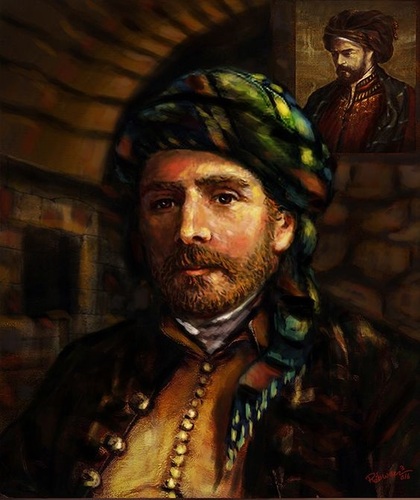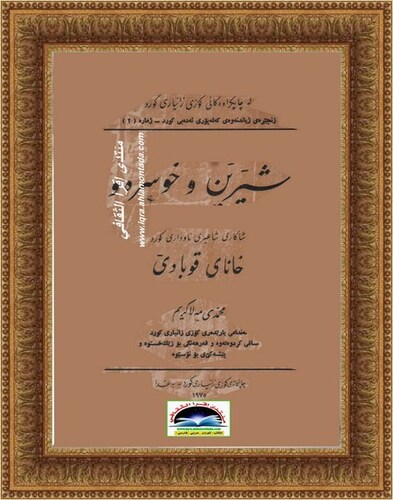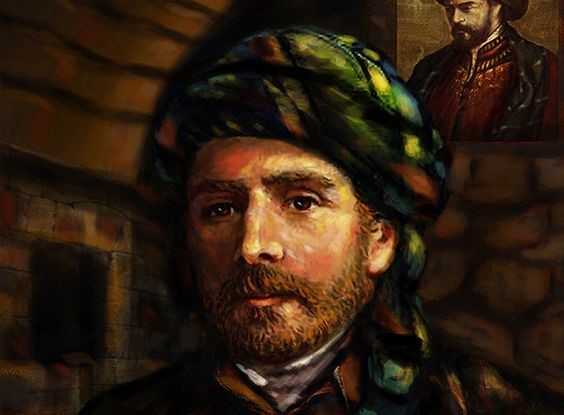The literary history of all living nations with “native” languages is full of literary works that bear the textual symbols of other countries, languages, and nations. The phenomenon that is now called intertextual influence has existed since ancient times and the content, form, and creative understanding of some texts from one language has influenced other languages, transferring both the process of creation and innovation from one geography to another and also the languages have acquired new capabilities that they did not have before. Examples of such texts are a lot in Western and Eastern literature.
For instance, the influence of the Iliad and Odyssey by Homer on hundreds and even thousands of literary works around the world is undeniable. Ulysses by James Joyce was influenced by Homer, written thousands of years ago, in the last century, and later became one of his own works World Literary Masterpieces in the Twentieth Century.
Kurdish literature has been constantly renewed in this regard. Kurdish writers have been aware of the literature, language, and culture of other nations, especially the nations of the region, since ancient times and have not lagged behind in the trend of language and literary and artistic innovation.

Khana Ghobadi is one of the Kurdish authors who was closely aware of the literature of other nations. The distinguished poet and thinker lived more than three centuries before.
The language, structure, and weight of the book show that it was written by an experienced poet, so more than three centuries ago Khana Ghobadi wrote a masterpiece such as Shirin and Khosrow in Kurdish. In addition to the book, we will discuss later, Khana also wrote several other great works, including Yusuf and Zulaykha, Leila and Majnun, Sultan Ibrahim, and Nosh Afarin. These works are all stories and poems of several hundred pages and several thousand verses. However, he also has his own book of poetry that has all the characteristics of the poetry of his time, ranging from descriptions of nature, Ghanayi (Lyric Poetry), Shingeri (Mourning Poetry), and poems about spring, to praise of God and the Prophet.
What I want to focus on in this article is the translation method from the perspective of Khana Qubadi, whom I can call the first Kurdish translator.
Three hundred years ago, Khana Ghobadi became interested in the works of the great Persian poet Nezami Ganjavi and began translating some of his works. Nezami's mother was also a Kurd and he mentions this in a part of his book Leyli and Majnoon, which tells the story of his mother.
He says, if my mother, who was a Kurdish Khanzad (the daughter of a noble) and a mother to me, died and ...

Khana Ghobadi was very interested in Nezami's poetic stories and therefore, feeling the importance of the art of translation and transferring the inventions and works of other languages, he began to translate several books of Nezami, including Shirin and Khosrow.
He had first changed the title of Nezami's book from "Khosrow and Shirin| to "Shirin and Khosrow". In detail, he mentions that he is translating a Nezami's text and mentions Nezami's name twenty times, however, what he has done is that he has taken the whole poetic story as an epic structure from Nezami Ganjavi, but in writing it, he has not followed the language or its divisions. But according to the needs of the text he is rewriting it, and he adds descriptions where necessary, giving the text epic movement, and even more than the author himself, he has written aesthetic verses.
The most famous text of Khana Ghobadi that has been passed down is two verses that can be mentioned as the basis for the identity of this great poet.
Khana Ghobadi, who translates Shirin and Khosrow, knows that he is translating a work from another language into his own, but he believes that his language is no less capable than the language of the source text because he can express what the poet of the other language, Nezami, said in his national language.
On the other hand, most of the Iranian poets wrote in Persian. However, he could write in Persian, he consciously wrote his romantic, social, and religious poetry in Kurdish to have his diwan. Also, he translates masterpieces from other languages into Kurdish and enriches his own language with them. He mentioned this in this translation:
It is true that Persian is a beautiful language
But Kurdish is a more beautiful language than Persian
Don't everyone in this world
Feel proud of their own language
In his poem, Khana Ghobadi speaks of his identity and responds to all the attacks that have underestimated other languages and recognized only a few regional languages as worthy of writing and invention. He writes consciously and courageously; if one of the most powerful languages in the region, Persian, is nice, then Kurdish as an independent language is even better, and therefore everyone should write and create literary and artistic works in their own language. Three centuries ago, Khana Ghobadi focuses on a problem that has not been solved yet.









